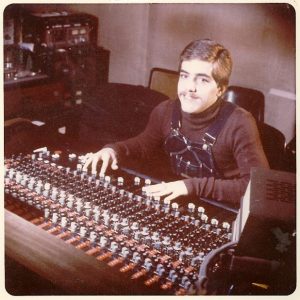
Walter Gibbons and the First Ever 12″ Single
A name that is not often mentioned when discussing the birth of modern DJ’ing is Walter Gibbons, though he made two important contributions to the world of DJ’ing: the 12″ single, and looping breaks live with two copies of a record.
Gibbons’ re-edit of Double Exposure’s disco hit “Ten Percent” was the first 12″ single to be released commercially, and his creation of that record paved the way for me, you, and every other DJ who has since followed in his footsteps. He built the blueprint for the soon-to-be ubiquitous disco remix, based on something he’d been doing live in clubs since 1972: extending a song’s beat using two copies of the same record, keeping flawless timing while doing so. Other DJs have said that until they watched him do it, they assumed he was playing a record featuring a professionally made extended mix.

If you think what he was doing sounds similar to what hip hop DJs began doing later, you’re right. The accepted story of the birth of hip hop is that it began on August 11, 1973, when Kool DJ Herc performed at his sister’s back to school party at 1520 Sedgwick Avenue, in the Bronx, but the history is all very hazy. We know that a DJ known as Grandmaster Flowers had been playing records at parks and other outdoor venues in the 1960s, and had established enough of a name for himself that James Brown chose Flowers as his opening act for a show at Yankee Stadium, in the Bronx, in 1969. That was perhaps the first time a DJ played the role of opening act for a band, and if not the first time, it was certainly a rarity in 1969.
It’s very likely that Flowers’ performance influenced the style of the Bronx DJs, but that is mere speculation. We do know that Herc was 18 years old at the time of his 1973 party, and it was one of his earliest public performances. It’s said that he debuted his “Merry-Go-Round” style of mixing that night, in which he mixed from the break portion of a James Brown record, “Give it Up or Turnit a Loose” into “Bongo Rock” (or maybe “Apache”) from the Incredible Bongo Band, and from there into the Babe Ruth anthem, “The Mexican.” At some future point, he started going back and forth between two copies of the same record to extend the break, though reportedly he did so without keeping the rhythm. It was more of a haphazard needle drop than a smooth segue. Grandmaster Flash is credited with perfecting the on-beat segue that extended a break using two copies of the same record, and staying on-beat as he did so, but we have no record of him doing that until 1977. Flash claims he was doing it in 1976, but no one but Walter Gibbons was doing it between 1972 and 1976.
Did Kool Herc, or any other Bronx DJs hear Gibbons mixing? Maybe, maybe not. Disco was huge, and many of the Bronx DJs went downtown to party. Some, like DJ Hollywood, performed in the downtown disco clubs, so certainly some of the future Bronx hip hop superstars were exposed to Gibbons. As in science, multiple discovery is common in music. Sometimes, the time is right for something to happen, and more than one person makes it happen at the same time. Percussion-rich records were suddenly common, turntables capable of slip cueing and quick mixing were new to the market, and professional mixers geared towards DJs, with cross-faders and headphone cueing were also new. Everything was ripe for DJs to take things to a new level, which they did, so it would not be surprising if Gibbons and Herc discovered the same thing independently of one another. We’ll probably never know.
What Kool DJ Herc did undeniably revolutionized music, and he deserves every bit of fame, credit, and praise he is given, and then some. His parties spawned Afrika Bambaataa and Grandmaster Flash, and that trio gave birth the hip hop nation. That said, when it comes to two-copy, breakbeat extension, Walter Gibbons got there first. His efforts are less celebrated, which I think is a shame. What he started doing in the early ’70s gave birth to the remixing techniques that propelled disco to the stratospheric heights it reached, and are still the de facto standards today.
If you know of Walter Gibbons at all, it may be due to his 1986 remix of “Set It Off,” a track by electronic musician Steve Standard, who recorded under the stage name Strafe.

For 1984, “Set It Off” sounds well ahead of its time, and you can hear the roots of modern house music in Gibbons’ remix. It was released at a time when disco and electro music sounded nothing like Strafe. As he had done years earlier for disco, with the original “Set It Off,” Gibbons created a blueprint for the sound that would become modern house music, a blueprint that nearly every subsequent producer and remixer has followed, which is why when we hear this song today we think “house music,” while those who heard it in 1986 thought “future music.”
You can hear Gibbons’ original mix, along with some remixes, of the dance classic “Set it Off” right here on Heavy Hits.
Every disco, hip hop, and electronic DJ owes an eternal debt of gratitude to the late Walter Gibbons.

The Advantage of Quantized Tracks
An unheralded advantage to pulling tracks from a properly managed record pool is having access to quantized versions of classic dance tracks. If you mix only modern electronic or hip hop music, just about everything you play likely comes already quantized. It was made on a computer, and even if the producer opted to swing the beats a bit to give the song a more human feel, it’s still going to be locked into one tempo. The moment you step into the arena of mixing indie rock, classic rock, disco, or any music performed by live musicians, all bets are off when it comes to having a consistent tempo.
If you aren’t familiar with quantization, or only know it as a function on a controller that helps you keep your pad-tapping on beat, let’s take a trip together down DJ Memory Lane, to the days when vinyl records were the only show in town.
When mixing with vinyl records was the only option, a DJ had to know every song inside and out. If the drummer speeds up from 114 BPM to 117 in bar two, then lags on one beat in bar four, before slowing down to 111 BPM in bar five, your mix was going to be way off if you weren’t anticipating those changes. And as changes like that happen in nearly every song recorded before the advent of drum machines in the 1980s, that meant that disco DJs had to keep a library’s worth of tempo changes cataloged in their head. I speak from experience! In the 1990s I was the resident DJ at Club 181 in San Francisco, where I played disco tunes on vinyl every Friday night. I had to remember every tempo change in every bar of every intro of every song in my crates, along with the same information for the breaks where I’d be mixing out of those songs. I wasn’t alone. Every DJ of that era had to be a part-time mnemonist in order to avoid train wrecks.
As it has done for most aspects of DJ’ing, digital technology has made our lives easier. Using Ableton, or similar software, I can now quantize a song, and lock every downbeat to the “1” of every bar, and make sure every snare hits precisely on a 2 or a 4. Of course, I don’t do it to that extent— I want to retain the human feel that those old tracks have— but I do make sure my intros and outros are locked to a precise tempo so that mixing disco, Motown, rock, Britpop, or any non-computer-created music is as easy as mixing EDM.
Happily, my workload decreased significantly once I started playing the pre-prepared, fully quantized, tracks available through Heavy Hits. Here’s a great example of a playlist of quantized tracks to make for seamless mixes at your next performance.
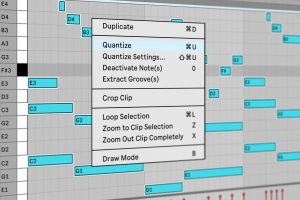
DJ Tech News – August 2021!
Its been a little while since the last round-up of DJ Tech News, so lets take a look at the most interesting tidbits of tech news!
Rekordbox Professional Plan – Unlimited Cloud Storage!
This one is a doozy – I’ve long been an advocate of storing your whole music library in the cloud, as I explained in this article. I use Serato, and favour Dropbox for this task.
Rekordbox has taken this to the next level, and their latest pro plan update means you can save and access your library, with up to 8 devices allowed access! The plan features unlimited storage, Dropbox smart sync, automatic device library backup, and it supports PC, Mac, iOS and Android devices.
Its not cheap – $29.99 paid monthly, or $299.99 per year, but I am a firm believer that if you are a professional DJ then you should spend a little money safeguarding the most important tool you have – your music library.
Rane Seventy A-Trak signature edition
This one came as a bit of a surprise when A-Trak teased a picture of the mixer online. But it actually makes a lot of sense that one of the most influential and talented DJs of our time should collaborate with Rane, makers of many legendary DJ mixers. The Seventy was already regarded as a hell of a mixer, but A-Trak has made a few interesting tweaks to it, creating his own spin on the battle mixer.
DJ Soo has put together this great review here, and here’s a video of A-Trak himself showing off what the mixer can do! As a special bonus from DJ Soo, check out his interview with A-Trak here!
Ableton Live 11 Lite
Ableton is now a solid fixture on the laptops of many DJs and producers, and has long been my go-to tool for making tracks, edits, mash-ups, and editing mixes. Its an incredibly versatile, remarkably powerful piece of software, and arguably the most popular one out there in its class.
Many pieces of hardware come with Ableton Live Lite bundled in, introducing people to that universe, and version 11 is out now, and free to those who want to upgrade to it. I’ve been using the full version of 11, and it is great – if you are eligible for the upgrade, I highly recommend you accept it with open arms!
Mixxx – 2.3.0 version update to the free software
While working on a project with some friends a couple of years ago, I had to get familiar with a tiny Numark controller, and found that it worked best with a completely free piece of software called Mixxx. I was blown away by the level of functionality and ease of use for something that cost zero dollars and zero cents, and they have recently updated to version 2.3.0.
For a full breakdown of the new features, you can head here. Hotcue colors & labels, mark intro/outro sections, add track colours to help navigate your library, and much more!
While this software might not be something that the sort of pro DJs who use Heavy Hits need, it is a brilliant, free way to introduce friends and family to DJing.
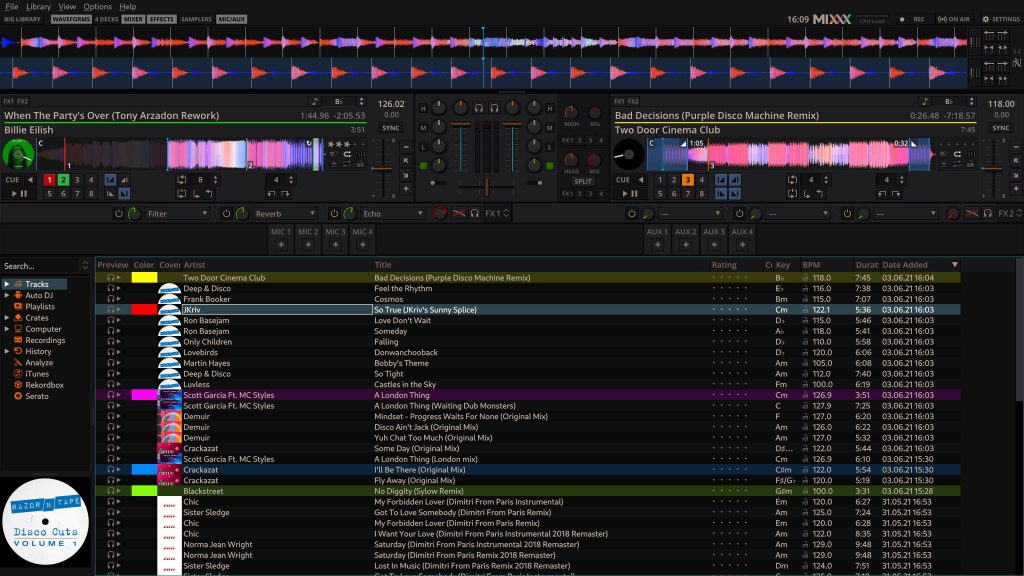
So that’s all for this round up, so head over to the Heavy Hits pool to get the best new music, and head over to our socials on Instagram, Twitter and Facebook and give us a follow!
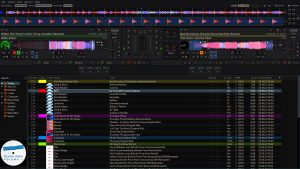
2021 So Far!
One day I will be able to write a blog post without commenting on what a strange time it has been for DJs. But today is not that day!
Depending on where you are reading this from, you’ve most likely had some form of lockdown for at least some of this year, or at the very least have been limited in what sort of social activities you can take part in – with nightclubs and festivals a pipedream for most of us for most of 2021.
In some ways this led to an interesting phenomenon amongst DJs playing in online streams – without the procession of requesters to ask for whatever is hot, and without owners and managers there to put pressure on to play the hits, a lot of DJs were able to explore and express their own tastes in ways that were almost impossible in normal times.
Obviously, it would be great if a decent chunk of that individuality and self-expression made its way to venues as countries re-open. But there is also a practical reality – venues need punters, and punters tend to want “the hits”. As a gigging DJ, it pays to at least be familiar with what is hot, even if you don’t play all of it, so that you can bend your sets towards what will keep the dancefloor full and the people paying you happy!
Well – as always, the Heavy Hits record pool has got your back! We tasked our brilliant playlist compilers to come up with the best of various genres in 2021 so far, featuring all the biggest hits and hottest dancefloor heat! So if you’re like me and spent the first half of 2021 listening to weird techno b-sides and suddenly have to deal with people asking for the latest drill sensation, you are in luck! Like I say – nobody is saying you have to play these songs, and every DJ should be encouraged to express themselves in their sets where appropriate, but it is extremely good practice to know what is popping off in tha clurrrrb.
Electronic/Dance
We’ve got the electronic/dance selection here, taking in some brilliant remixers from the Heavy Hits crew (including this phenomenal JEKEY flip) as well as originals from heavyweights such as Afrojack, David Guetta and Joel Corry (who I am actually DJing with later tonight in London!).
Latin
Current Latin music is something I am always in a battle to stay on top of for a couple of venues I play at – and here’s the ultimate cheat sheet for DJs like me! There’s a lot of familiar names – Daddy Yankee, Bad Bunny, J Balvin, Karol G etc – and a fair few that I don’t recognise as well. I will be making sure all these tunes are in a folder ready to go, for when I’m playing at venues that have a big latin clientele!
Hip-Hop/R&B
Hip-Hop/R&B is probably the most popular genre on Heavy Hits, so maybe you are already on top of this one – but maybe there’s a few gems you missed out on, or maybe you spent the first half of the year blasting 1991-93 New York boom bap on Twitch, and now have to work out who Lil Who-the-hell-is-that and Lil Wotsisname are. Well – here you go! A comprehensive round up of the biggest new rap tracks – everything from Migos to Moneybagg Yo.
Pop/Top 40
Gonna be playing to a pop/top 40 crowd, but not been paying attention to the charts this year? No problem! Here’s a comprehensive selection of the major hits of 2021 to date – from the K-Pop of BTS to the alt-pop of Billie Eilish, and all sorts of points inbetween. Some real pop heavyweights in this playlist.
International
The International playlist is always a fascinating smorgasbord of goodies from all sorts of regions and styles, and this 2021 So Far playlist is no exception. Burna Boy – Kilometre is one of the anthems of the year in London, and this playlist takes off from that excellent launch point! French, German, even Swiss with the absolute banger Oh Digga by Loredana!
Dancehall/Reggae
And finally we have the Dancehalll/Reggae playlist. I’m always pleased to see playlists on Heavy Hits for this genre – I love playing it, but don’t follow the scene closely enough to know what’s what, and its very tempting to fall back on the same old hits from 10+ years ago. Keep it fresh! There’s the familiar names you’ll definitely know if you have a passing interest in the genre, but then a whole host of music that will quite possibly be new to you – check it out!
So there we go – plenty of music to get stuck into, and maybe some of it will make it into your sets!
In the meantime, follow Heavy Hits on Instagram, Twitter and Facebook!
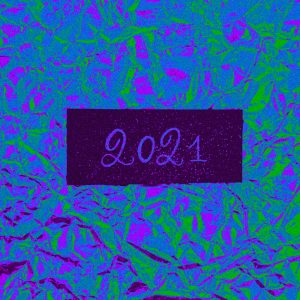
808 Day!
One of the most significant dates in the DJ calendar (along with the 12th of October, or the 10th of December, depending on how you do your calendar for 1210…) is the 8th of August – 8/08
Why is that? Because one of the foundational instruments of modern music is the Roland TR-808 drum machine, famous for its huge, booming kick drum. The basis of electro, hip hop, house, techno – music as we know it simply wouldn’t exist without the influence of this instrument.
First released in 1980, this drum machine was initially not much loved due to the unrealistic representations of drum sounds. But pioneering use by the likes of Afrika Bambaata and Marvin Gaye broke the sound out to the masses, and before too long the distinctive sounds were everywhere. Now it is reckoned to be on more hits than any other drum machine, and still features prominently in a huge number of genres and styles.
And this being Heavy Hits, we’ve compiled some of the best of those many, many hits into one brilliant playlist, which you can find here.
If you want to take your DJing to the next level, how about this insane Pioneer controller, the DJ-808! Skratch Bastid really puts it through its paces here!
Of course you could always buy an original unit, but they are a little bit pricey these days… if you don’t have $5000 sitting around to drop on an original vintage unit, but want to have a play around with the sounds of an 808, check out this awesome online emulator here.
In the meantime, follow Heavy Hits on Instagram, Twitter and Facebook!
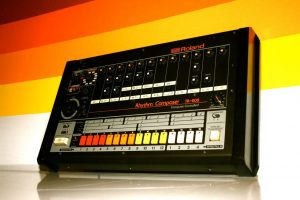
DJ Irie – Bringing The Heat!
Today we have the tremendous pleasure of speaking with DJ Irie – and he has a hell of a career to tell us about. Lets jump right in!
Can you tell our readers a little bit about yourself, and what you do
Born in the U.S. Virgin Islands and raised in Miami, Florida. Music has been my life for as long as I can remember. I started my DJ career at the local skating rink, then on to college parties, to nightclubs, to radio, to being the first official DJ of a major sports team (Miami HEAT), and on to tour the globe.
How did you first get started as a DJ, and who were your early inspirations?
I actually started as a record collector. I was just infatuated with the feel and sound of vinyl records so I amassed a huge collection before I even graduated high school. I never thought I had it in me to actually DJ in front of people, but by a freak circumstance the opportunity came up and most of my ability just came so natural. I knew this was what I wanted to do! My biggest early inspiration was Q from Juice!! Yes Omar Epps had me mesmerized in that DJ battle scene… shout out to the originator DJ Scratch!

You’re a pretty experienced DJ – what have been the biggest changes you’ve seen in your time behind the decks?
Hands down the biggest change has been the digital revolution. The MP3 changed EVERYTHING! Not only did it revolutionize our equipment and approach to DJing, but also almost all aspects of the economics of DJing. From eliminating the cost of buying records, to lowering the barrier to entry into the profession, ushering in a whole new slate of “discount” DJs.
One of the most eye-catching achievements on your career has been your position as the DJ for the Miami Heat NBA team – how did that come about?
I joined the Miami HEAT back in the fall of 1999 not only as the first official DJ of the Miami HEAT but the first official DJ of any major sports team. The idea was concocted by the marketing department at the HEAT as a new entertainment attraction for the fans as the team made the transition to the brand new American Airlines Arena at the time.
Many of the people in the dept were familiar with my work from radio and the local club scene, and felt I was the right guy to give it a shot with. After I met with them I actually thought I was the wrong guy, and nearly passed on the opportunity. It wasn’t until I realized this had never been done before I thought I had to give it a shot to at least see how the fans would receive me. It was almost an instant hit!
Now I look back – 3 World Championships and 21 years later, and it’s one of the best decisions I’ve ever made! The Miami HEAT is truly a world class organization in every sense of the word.
The experience of working on such a big stage, and around such superstars must have been an incredible boost for your status and reputation – how did you utilise that to develop other aspects of your career?
It absolutely was a big boost for my rep, especially in the more corporate and family circles. Up until joining the HEAT people only knew me if they were in the club scene or listened to my radio mixshow. After my first season with the HEAT I was being recognized by 6 year old kids and their moms walking down the street, and getting hired by companies like Microsoft to perform at their annual conference.
You have created The Irie Foundation – can you tell us a bit about that, and the work it does?
The Irie Foundation is very near and dear to my heart because of the mission and work we do. It’s all about bridging the opportunity gap. We have soo many truly brilliant and talented youth not able to develop to their true potential because of serious lack of access to opportunity. Our mission at the Irie Foundation is to provide access to those experiences and resources, to help them realize their true full potential.
Do you see music as playing a big role in helping young people from difficult backgrounds find a way towards a better life?
There’s no question about it that many times MUSIC is the answer! Music can be such a great driving force for young people to express their creativity and a constructive and productive way. I see it all the time.

If you could go back in time and give yourself one piece of advice at the start of your career, what would it be?
That’s easy.. LEARN MUSIC PRODUCTION!! Learning music production would have been the perfect complement to my DJ career, and I know I could have done something really special with it.
What’s the one most important thing you would tell a young DJ starting out today?
The one most important thing is to do it because you absolutely love it! If you can honestly say to yourself. If I never made a nickel doing this would I still want to do it? If your answer is yes then this DJ life is for you!
Do you have anything else you would like to mention or promote?
I just recently closed on the biggest business deal of my life! I bought an ownership stake in a new champagne brand called Provocativo. I can’t divulge all the details right now but some amazing announcements are coming soon and I’ve never been more excited about a new project.
A huge thank you to DJ Irie for his time! A real lesson in the value of seizing the opportunities that come your way!
If you want to be ready for action when things tip off in your home town, get to the Heavy Hits Pool and download the best new music. And check out our socials at Instagram, Facebook and Twitter. You can follow me over here on Instagram.

Performing at Corporate Shows
One thing that you learn as you grow up within the DJ industry is that there are a lot more facets to the trade than you realised as an outsider. And a lot of the best DJs have fingers in more than one of these pies, for all sorts of different reasons.
Today, we are going to talk about corporate gigs – ie, sets for company events, parties, trade shows etc.
“But why would I DJ for The Man, man?” you may ask. Well, mainly because they generally pay extremely well, considerably better than the average club or bar gig. Some DJ purists will think they are the worst thing ever, and so this article probably isn’t for them. The rest of you, strap in!
Getting Booked
This is probably the trickiest part. There’s a million companies out there, and there’s even more DJs. How do you go about getting on their radar?
The most obvious way is by being a really well known, cool DJ that brands want to be associated with. If thats you, well done! For the rest of us mortals, lets explore some other avenues.
You could try targeting ads for your services at Facebook users who have “event planner” and the like as their job title – many major corporate events are arranged by 3rd party companies. LinkedIn is largely seen as being for more “serious” industries than DJing, but consider updating your profile on there, and attempting to network with people, establish contacts with representatives at companies who are involved in putting events on, or targeting event companies. As with so much of DJing, a huge amount comes down to the networks you can build, and the contacts you have.
Carry business cards with you at all times and give them out as much as you can. Be inquisitive when speaking to people out and about – you never know who might end up contacting you in 6 months, asking about a set… When you spend your life surrounded by DJs, you find it hard to imagine that anyone could struggle to know how to book one, but when the social secretary at an accountancy firm is told “go and get a DJ for our Christmas Party”, most will not have a clue where to look!
So expand your network, and make people aware that you do this sort of work. It will take time, but as you grow in experience, your network will grow alongside that.
Brand Presence
For most DJs, this basically comes down to “What does my Instagram look like”. For others, they might have a website, a Soundcloud, a Twitch Channel, a YouTube, and so on. But, basically, when you are up for consideration for a gig, they will Google you, and then check maybe the top 1-3 results. Its really unlikely that they dig a whole lot deeper than that. So think about what image you want to portray to potential clients – here’s an excellent example from friend of the blog, Martin 2 Smoove.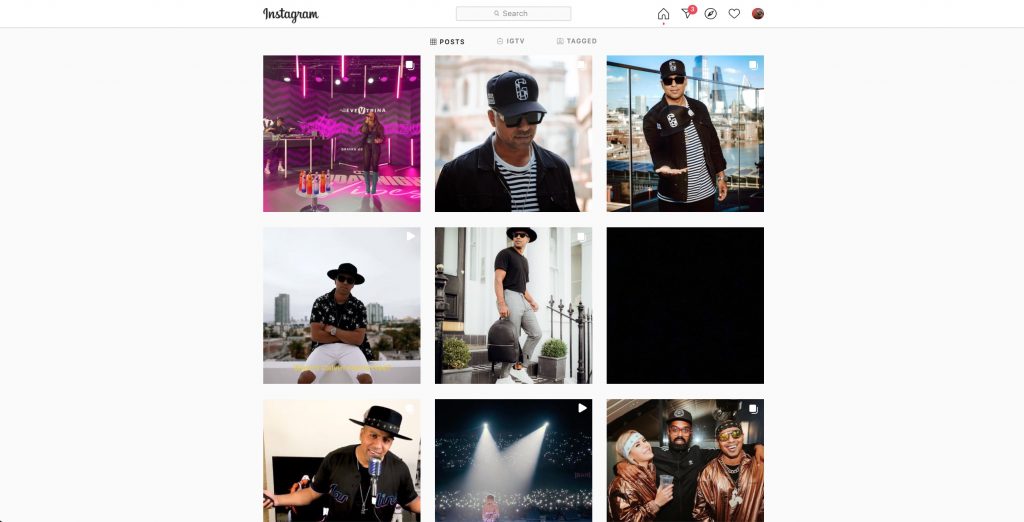 They are checking “Is this DJ legit?” – so think about what your Instagram and website and so on say about you, at first glance. Would you book a DJ with the first 12 pics you have on your Instagram? Sounds silly, but this stuff really matters. People are busy, they often just want a quick reassurance that you look the part, are a professional DJ, and that they can quickly show this to their boss and be believed.
They are checking “Is this DJ legit?” – so think about what your Instagram and website and so on say about you, at first glance. Would you book a DJ with the first 12 pics you have on your Instagram? Sounds silly, but this stuff really matters. People are busy, they often just want a quick reassurance that you look the part, are a professional DJ, and that they can quickly show this to their boss and be believed.
Having a slick, well-produced video showreel that showcases you performing at some exciting looking events is a huge win for this sort of thing – that can be hosted on your website and Instagram, and sent to potential clients. I know DJs who have spent their entire fee for an event on getting someone down to film it, knowing that the footage they will get in return will be worth many future bookings. Ultimately, its all about making them feel that they are getting a seasoned pro who has played at the kind of event they want to put on!
Know Your Role
Why did they bring you in? Is it to play a super accessible, cheesy mix of pop? Or to add some credibility to a brand because of your underground techno releases? This is generally quite clear, but its worth trying to gauge just where they want you to pitch it – I’ve misunderstood what brands have wanted before and ended up playing either way too commercial, or nowhere near commercial enough, or completely the wrong genres!
One very big DJ I spoke to on this topic made an astute point – he does a bunch of his cooler gigs for hardly any money, because they give him the rep to then be booked for huge fees by corporate brands. If he does too many corporate gigs, the cool slips. Not enough, he’s not making the money he wants to. So there’s a balancing act for some DJs, especially the more famous ones.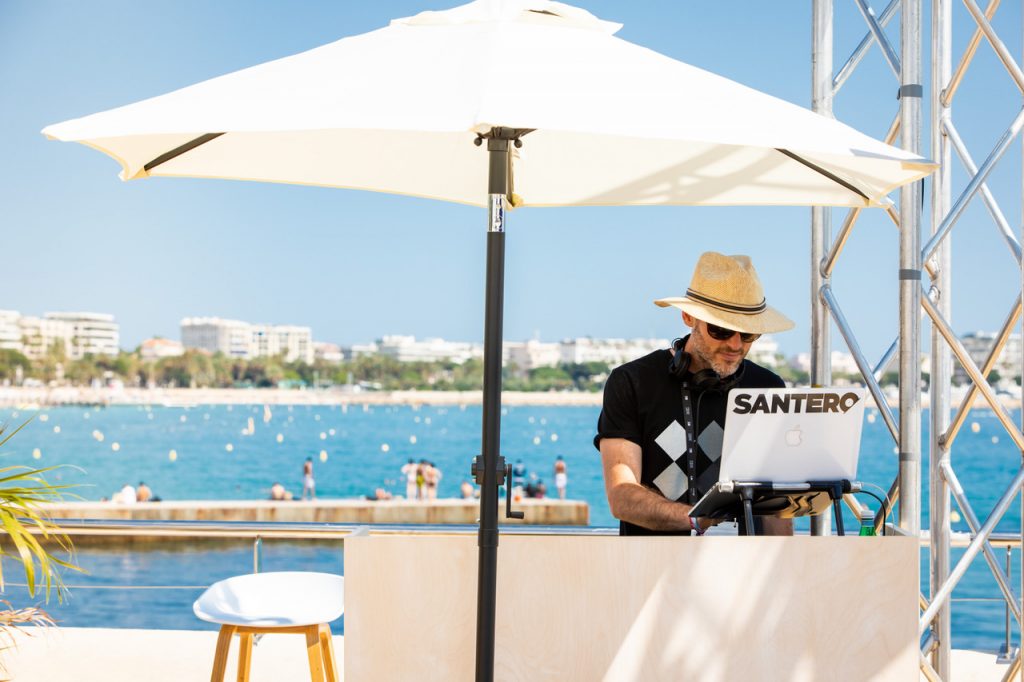
Negotiating Fees
This is always hard, in any corner of DJ world. You don’t want to pitch too low, and miss out on money you could have had. You don’t want to go in too high and scare them away. In my experience, they will generally ask what your fee is, assuming that you have a fixed fee or hourly rate. My suggestion is to avoid replying with a number straight away – ask a bunch of questions first. Where is it going to be? What music do they want, how long a set, what time will it finish, do they need you to bring equipment as well, how many attendees will be present, and so on. The more information you can get, the better.
Its not a firm rule, but its reasonable to assume that a small office party for 50 staff will have less budget than 1000 people in a fancy venue that they’ve hired for the event. Its reasonable to want more for a 6 hour set that finished at 3am, vs a 4 hour set in the middle of the day which still allows you to DJ elsewhere in the evening, and so on. All sorts of things make a gig harder work or easier work – its on you to work these things out before committing to a price.
A solid piece of advice I once got from Martin 2 Smoove was to politely ask the question back “What’s your budget?”
Of course – this carries risk. They might say “$50”, and then you’ll have a hell of a job negotiating to a decent fee from that anchor point. And its extremely possible that they will not give you a number, and instead knock the tennis ball back to your half of the court – often this can end up feeling like a game of chicken, with neither side of the deal wanting to disclose what number they have in mind.
Try to find out what fees are the typical range in your area. Also consider the who the client is – if they are a super high-end brand, they will likely be expecting to pay for quality. Early in my career I missed out on gigs because my fee was too low! They saw how much I’d asked for, and concluded that I wasn’t a high enough status DJ for them, whereas I was terrified of pricing myself out of the gig but had no context for what was normal for that sort of set.
My brother refers to this game as The Bravery Index. How much do you dare ask for, vs how much do you dare risk losing the gig? Ironically, when you most need the money is when you are least likely to be brave enough to ask for the maximum you could get. I have got to a point where I will happily ask for fees at the higher end of the spectrum, and if they say no, I don’t really care – I’m very busy with regular gigs, and corporate gigs tend to involve playing music I don’t really love.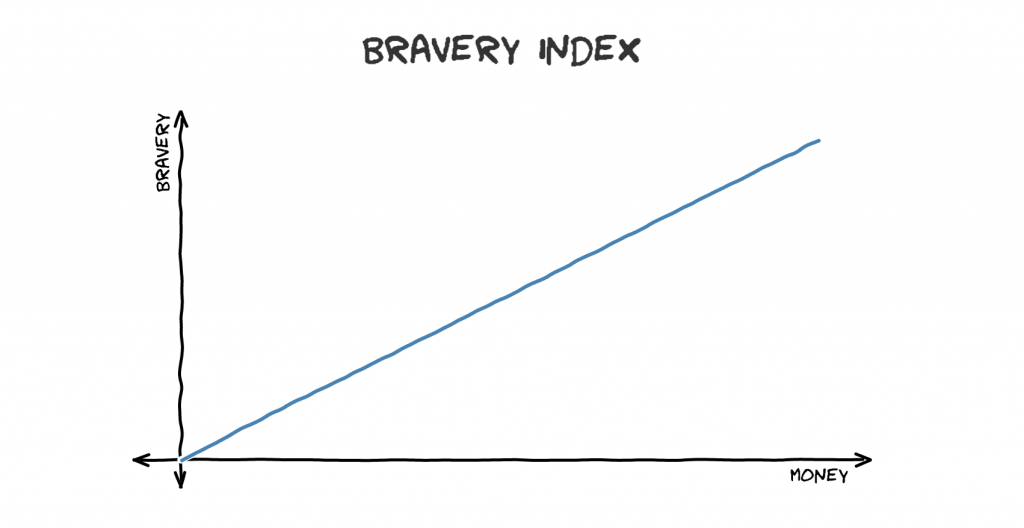 So, this is a pretty tricky aspect. You want to have an idea of a minimum you are prepared to do it for, a goal of what you want to get, and then try to gauge things and get that pitch right.
So, this is a pretty tricky aspect. You want to have an idea of a minimum you are prepared to do it for, a goal of what you want to get, and then try to gauge things and get that pitch right.
As I mentioned already – don’t be afraid to play poker a little bit, and instead of putting a number on it ask questions to get a bigger idea of what you are signing up to. If you do it in the right way, its just you being professional anyway, and then when you get to saying “I will cost $XXXX for that”, you can make the justification of how you got to that number based on the gig details you’ve been given.
Preparation
Fail to prepare, prepare to fail!
Be thorough in your preparation. Get as much info as you can from the client, without constantly pestering them and becoming a hassle. Does the music selection need to be family friendly? Are there any songs/artists to avoid (you cannot imagine the fuss that blew up when I played a request for Blurred Lines at a tech giant’s Xmas party and somebody complained!)? Do they want modern, classic, a mix of both? Underground and cool, or top 40 and cheesy? Is there a dress code, or a theme for the event? The more you know, the less scope there is to get anything wrong.
One thing that you will likely experience more than once – the confusing brief. “Can you play a selection of fun tunes that are serious, nothing too dancey but that makes you want to move” is the kind of thing I mean. These are all too common when someone who isn’t really all that musical is giving musical directions. I try to encourage them to be as specific as they can – but sometimes you have to try to work it out with a bit of intuition! All too often, the brief is next-to-meaningless, and all that matters is that you read the room, give everyone a great time, and then at the end they’ll say “You smashed the brief, great job!”, regardless of what you actually played!
Aesthetics
Its a good idea to ask them about dress codes or event themes. If its a black tie event, and you turn up in baggy jeans and a scruffy t-shirt, they might not be happy. And you might think that they aren’t happy and it might affect your experience on the night, but maybe they didn’t expect you to dress up like the attendees. They might have something they want you to wear (the black t-shirt in the beach photo higher up the article is an IBM branded one, for instance, at their installation at Cannes Lions), and if so, you want to make sure they give you the right size! So, ask the question in advance.
I personally make a point of dressing a little more “showbiz” for these sorts of events, and shape what that is depending on the dress code or type of event. I want to fit in enough that I look like I belong there, but be dressed in such a way that when I arrive the event organiser can look across the room and go “Oh, I think the DJ is here”. I favour brightly printed patterns on my shirts – my pineapple shirt was a HUGE hit with the online events I did for Monkey Shoulder Lock In Live, people in the chat room couldn’t stop talking about it, and it fitted in with a big part of their graphic design and stage design.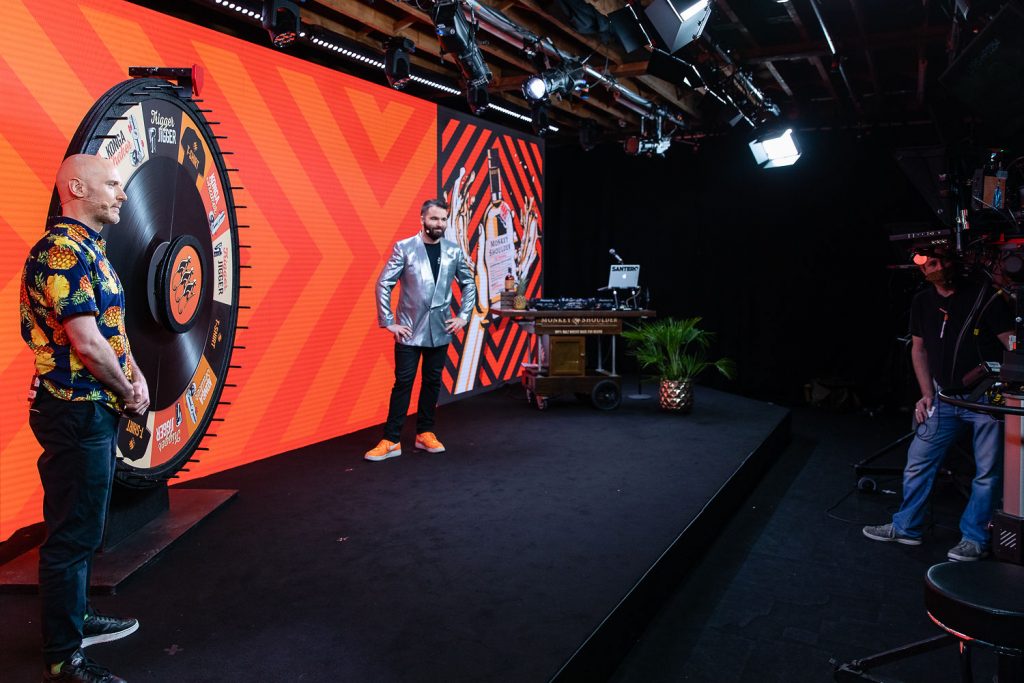
Social Media
Its a very good idea to ask in advance about whether they want things posting to social media or not, and if so, whether they have any hashtags or accounts that they want tagging in. Organisers will generally appreciate the consideration of something like this. Most places really don’t mind, but when I have DJ’d at staff events for Facebook, they have a strict “no social media posts about the event” rule, which is rather ironic. If its really strict, you might be asked to sign an NDA – Non Disclosure Agreement.
Read The Room
At any given event there will be a hierarchy. You will most likely be dealing most directly with an event planner. They might be a professional that a company has brought in to take care of this aspect of proceedings, they might be a staff member from the company who looks after extra-curricular events. Obviously, you want to establish a good rapport with them – if its the former, the company may be an excellent source of different work opportunities, if its the latter, they may have some say in whether you are re-booked for future company events.
But its also a good idea to try and work out who is who – the more senior, the more you want to keep them onside! Upset the billionaire CEO by telling them that their request is terrible… not a good look! Its not a bad idea to simply ask your contact when you arrive – just get them to point out the key people, or maybe even introduce you around if that is possible. They have a vested interest in you smashing your role, and not upsetting anybody!
Find out about the end time – is it a hard stop, with no wiggle room, or is there scope to play on for a bit if the crowd wants more? Who can you legitimately listen to if they ask you to play on for a while – I did a Christmas party where I was booked for 3 hours. They kept on coming over and saying “could you do an extra hour?” Ultimately I did 7 hours, more than doubling my fee – but I only agreed to that because I knew that the person asking me could vouch for the fact I would receive the extra money when I invoiced for it.
Contracts
These are not always necessary (and in my experience, quite unusual unless I am working through a booking agency), but there is certainly no harm in protecting both yourself and the client with a contract. This formalises the expectations of the client, the timings, the fee – it removes an awful lot of the possibilities for misunderstandings.
You can also potentially negotiate a deposit (if doing this I usually make it 25% of the total fee) to secure the date.
Obviously, in an ideal world you would get a lawyer to draw you something up bespoke, but not everybody has the budget to get that done. Fortunately, a lot of templates exist online – I would recommend Googling “DJ Contract Template” or similar and going through a few options to see what looks right, and maybe editing whatever you choose to be right for the event in question. Ideally look for templates that are based on the legal system you are in!
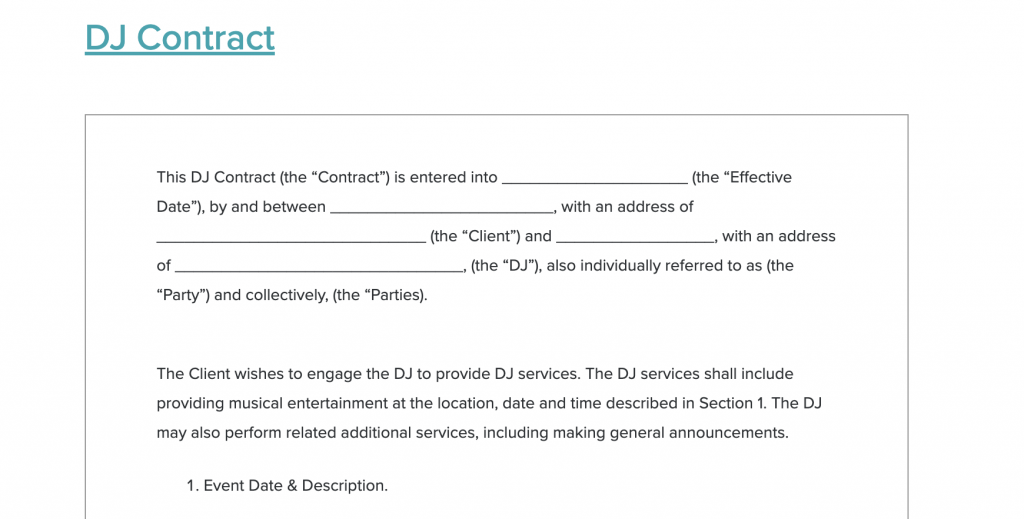
Getting Paid
This is a big part of why you are doing these gigs – so make sure you do the homework and prep on how you will get paid. Often, its a bit more complicated than simply turn up, sign an invoice, get handed an envelope full of cash or have the money transfered into your account a day or two later.
Very often for such clients, I have to be added to their payroll system before they can give me a purchase order number, and I can’t invoice without the PO number. And just as often, the wheels of these accounts departments move verrrrryyyyyyy slooooooowwwwwwwlllyyyyyyyyy. Don’t be shocked if the payment takes a considerable length of time – I’ve known it to be a couple of months before i get paid. If this is something you are not prepared to put up with, make sure you have it included on the contract that you will be paid within X period of time. My invoices always include the line at the bottom
“All invoices which exceed a 30 day term will incur;
Administration fee (£40) and interest calculated at 8% + the Bank of England Base rate.”
This is the maximum allowed under UK law. Speak to an accountant or lawyer to find out what is permissible in your territory. I have never actually had to enforce this penalty, and would only do so as a last resort. But it acts as a very useful accelerant when you can email the accounts department and say “the payment now falls outside the terms I set out in the invoice, will this be paid this week?” – they take a look at the invoice, realise things need to happen ASAP, and almost always pay straight away. Be aware – if you enforce this penalty, you might be burning a bridge that could be worth thousands down the years ahead, so in my opinion, only use it as the nuclear option.
Tips From The Team
The Heavy Hits team has plenty of experience DJing at corporate events, and here’s a few suggestions they gave to make sure you rock it.
Serg Sniper makes these observations
Try to get or make an itinerary listing the sequence that planned activities happen.
1. Like cocktail start time and end.
2. Expected dinner serving time.
3. Speeches or group activities.
4. Party time
5. Who is your point of contact at the event because sometimes there is more than one person trying to tell you what to do.
6. Parking options
7. Figure out what route is the best to take and how long it takes depending on the scheduled time of the event.
For example : If the event starts at 6pm on a weekday, you’re going to likely hit traffic you wouldn’t normally see if you always do weekend events.
8. Clean library of music a must.
9. Always have a contract for your and the clients protection.
10. Having DJ Insurance doesn’t hurt [many clients will want you to have Public Liability Insurance, and for any electrical equipment to be tested annualy for safety]
Often an event planner will be able to provide you with a detailed itinerary – if that’s the case, read it, absorb it, and save it on your phone so you can refer to it on the day! The clean library is a great point – I always check if they want things to be family friendly, and if I don’t get a clear answer, I assume that they do.
DJ Chemics had this to say –
1. Show up early (at least 1-3 hours early to make sure equipment is set up and you’re ready to go)
2. Plan out your DJ set (get as much information from the client, to know what style of music fits your event)
3. Always have a plan B (in case your equipment or laptops fails you, have a backup music source)
4. Make sure you have got everything for the gig (do a checklist of all the equipment that is required for this gig
5. Play to the crowd (always read the room when you’re playing, and back that up with your MC skills.
6. Relax, you got this (anhale and exhale, you got this)
Some valuable points here – some of which are expanded on in this previous article called Be Prepared! One thing which I wish I had worked on earlier in my career is my mic skills – this is a huge advantage at a corporate type of show, where it is often expected that you will be able to make announcements and guide an event from one section to another. Being able to double as a host makes you far more valuable to a client than solely being a DJ playing music.
The ever stylish don that is Schuller gives the simple guidance – “Dress to impress for corporate gigs”. And DJ AndOne has a few crucial pieces of advice – “link up with a talent agency, 80% of your work is done before the gig even starts, and understand what your role is”. The talent agency thing is solid advice – sure, they’ll be taking a chunk of your fee, but they will most likely have a considerably larger contact network than you do, and as a result will be able to place you in far more gigs. A percentage of a lot is better than all of not very much! And the more you do these events, the better you will get at them, and the more your name will spread around the people who set them up.
DJ Soto offers this advice; “Make sure you connect with the event planner to know what genres of music to play. A checklist is hella key. In the beginning I can’t tell you how many times I either forgot a charger, a power cord, etc.” At a club, these things are often easily fixed by speaking to the sound guy – at a corporate event, maybe they’ve hired in sound & light and they can help, but if not…
Have Fun!
So, there’s plenty there to take in and work from. But the biggest thing I can say is – enjoy yourself, and make it clear you are enjoying yourself. Crowds vibe off the energy coming from the booth, and corporate gigs can be quite stuffy affairs. If you are bouncing around and smiling behind the decks, the audience starts to feel like it has permission to relax and enjoy themselves more, and the client feels like you are doing what you are most likely to be there for – bringing the party, bringing the fun times!
One thing is for sure – the Heavy Hits record pool has an amazing selection of tracks for corporate events of all styles, and is very careful to make sure things are correctly labeled clean and dirty. Go and get digging, so that you are ready for when the opportunity arrives! And check out the Heavy Hits socials at Instagram, Facebook and Twitter. You can find me on Twitch, Instagram and Twitter.

Back Your Music Up!
Something that I am extremely passsionate about is one of the more unglamourous aspects of being a DJ. But it is also one of the most important.
Backing up your data.
Primarily, this means your music library. But it extends beyond that. Your file system, the way you arrange your crates, your invoices, artwork, photos from gigs, etc etc. Anything that is critical to your job as a DJ, and everything that entails.
So, today I’m going to talk you through a few ways to safeguard your music and your data.
Insurance Policy
Its useful to think of backups as a kind of insurance. Many moons ago, I worked in insurance. The founding principle of the industry is that everyone pays into a pot, and then if you suffer a loss (theft, fire, whatever), the pot pays out and gets you back where you were before the loss. Its an inconvenience to have to have insurance, and its one of the rare things in life that you pay for and hope you never have to use. But it is a very good idea to have it, because if something goes wrong…
This is much like the principle of backups. I don’t really ever want to need them and they can sometimes be a hassle to maintain, but far more than that, I NEVER, EVER, EVER want to need them and not have them. I have heard far too many horror stories of DJs who didn’t have backups and then had their laptop stolen at a gig, or their house burgled, and so on.
Physical Backups
This is the most obvious. So, you have your laptop and/or desktop computer. For most DJs, that’s a Macbook of some sort. But whatever it is, a regular backup to a physical external hard drive is an extremely good idea.
I use Carbon Copy Cloner to do backups of my DJ Macbook, and a couple of key external hard drives that I have that are full of music. Time Machine can do similar. And other similar services exist for PC, the best of which are detailed here. What is really cool with these services is that you can update your backups in a way that retains old data from previous backups, which is no longer on your computer. This capability depends on the hard drive capacity, but it can be very useful if you realise you’ve deleted something in error and need to go back to it, or if you want to take your computer back to an old set up after an update you don’t like.
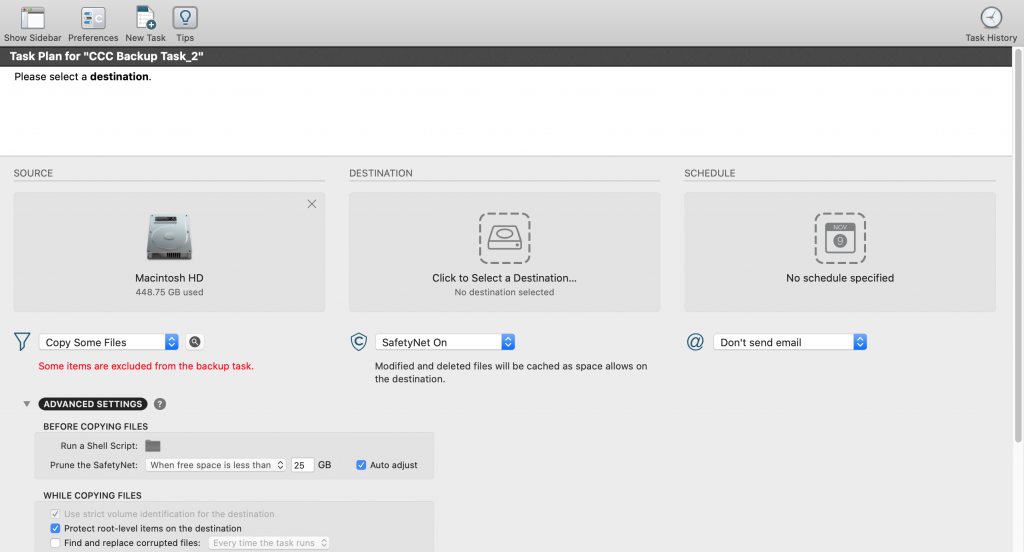
Now, this is all great. You’ve got your laptop, you’ve got some externals, including a backup external with all your critical data on it! Nothing to worry about right? WRONG!
Let me tell you a story, about a friend of mine who is a computer specialist. He had SEVEN backup hard drives for his various laptops and desktops. He was extremely pleased with himself about how thorough he had been with his backing up of data. Which was all going great, until he got burgled. And the burglars took every single computer, and every single hard drive, meaning he had lost literally EVERYTHING.
So – what is the lesson here? Make an external that you do regular backups to, and then give it to a trusted neighbour, friend or family member to look after at their home. Get it from them periodically to update the backup, but generally leave it with them. If all your backups are in one location, you are a hostage to fortune – burglaries happen, floods happen, fires happen.
In terms of what brands to buy – read reviews, especially from tech specialist sites. All hard drive manufacturers will have some failure rate. Its inevitable with the technology, but a bit of research should help you avoid too many problems. If you can afford Solid State Drives (SSD), they are more reliable, as there are less moving parts involved. I have a mix of Lacie and Western Digital hard drives, and have no complaints about either.
The fact that drives sometimes fail leads me to the next form of backing up your data…
Cloud Backups
This is a relatively recent development, but I highly recommend that you get on board with this. In fact, I use 2 separate cloud services to maximise my cover and flexibility. I have Dropbox, and Backblaze. My 2tb Dropbox cost me £124.88 for the most recent year, Backblaze I paid $132 in 2019 for 2 years (if memory serves it was a discount deal), and it is unlimited.
With Dropbox, I have placed my entire iTunes library in there. I also have my invoices, all my artwork and press photos, and anything else that I consider vital to my DJ career. If my laptop dies, or is stolen, I can go out, buy a new laptop, instal Dropbox and wait for it to sync up, and then hey presto, all the really important stuff is exactly where I want it to be. It just sits on my laptop like a folder, making it incredibly easy to navigate, share things, move stuff around, and have instant access to my tunes and critical data.

Backblaze is less instant, and more of a background thing. And because if how much I back up to it, it can sometimes seem pointless to start – I’ve had so many friends say “it would take months, I can’t do that”. Well guess what – they said that years ago, and if they’d just got Backblaze, they could have all their data backed up on the cloud now!
I have well over 4TB backed up on there. One handy feature that I have used – you can go online and search your backed up files, and download them individually. So, sometimes I’ve had a request I want to play, or just thought of some obscure album track I’d like to use – I can go online, download, pop it into Serato, and be playing it within a minute. I’ve done this dozens of times during performances. You can even arrange to get a hard drive sent to you by Backblaze with all your backed up data on it, for a fee.
Other handy tactics
This isn’t exactly a backup, but in a sense it is. I mainly DJ with Serato, but I do occasionally play off Rekordbox. So I have a bunch of 128GB USB sticks, loaded with music of various styles. Given that I am picking the most likely stuff I will end up playing (vs a laptop, where often its full of things you’ll never even consider playing), these USB sticks are actually a pretty decent emergency backup in the event of something bad happening – plus they enable you to have a bit of versatility in how you play out, in case of tricky equipment situations, or simply not wanting to take your laptop out that night for whatever reason.
So there you go. I have heard far, far too many horror stories where DJs have simply not backed up their music, and are left in a terrible situation after a robbery or other data loss. Its not glamourous, its not exciting, but its one of the most important things a DJ can do in the digital age. Please, back up your music as fully as you can, and make sure it isn’t all stored in one location – either by storing a backup in another location, by using cloud services, or both.
For now – go check out the brilliant Heavy Hits pool to get the best new music, and head over to our socials on Instagram, Twitter and Facebook.

DJ Tech News – May 2021!
We have some fantastic new things to talk about today, so lets get right to it!
Mixed In Key 10
First up, the respected Mixed In Key software has released a v10 update, promising even more accurate key detection. Users of this software (which includes me) will be well aware that it is more accurate than rival key detection provided by Serato etc, and with key detection, accuracy is everything. It claims to be at least 10% better than its nearest rival, and 95% as accurate as a pitch perfect musician, even with difficult songs. I don’t know exactly how they reached those numbers, but I do know that it has long been my preferred key detection software, and I have already paid for the upgrade. The cost is $58 for first time users, or $39 as an upgrade
Beyond this important aspect, it now supports exporting cue points to Rekordbox, marks the energy levels of tracks from 1-10, and has a remodelled user interface. It also has metatagging functionality, for tidying up the tags on your collection.
I also highly recommend their (now relatively old) Platinum Notes software for evening out volumes on your music collection – especially if you DJ using Rekordbox/USBs.
Algoriddim DJ AI
We’ve talked about Algoriddim on previous Tech News updates, but this time we have the kind of news DJs might not be entirely comfortable with… They have released an update for iPhone and iPod which claims to have significantly improved Automix AI and Neural Mix AI – the former having been totally rebuilt. By combining the two, it enables your computer to “deconstruct two songs into their original components, and easily apply effects and filters to each, like adding a reverb to wash out vocals, as if it were being reconstructed by a professional sound engineer.”
Smart DJs will have known that this sort of thing arriving on the scene was just as inevitable as the sun coming up in the morning – the key here is to find ways to use this technology to your advantage, and bring human qualities in your DJ performances that an AI like this can’t replicate!
Bitwig Studio 4
The exciting music production software Bitwig has releaves v4, promising some really cool features! They have a new thing called “Comping”, which is all about taking the best bits of your performances from multiple takes to create the ideal final composition, plus “Operators”, which allows you to insert randomness into your programming, leading to fascinating and unexpected creations!
Bitwig isn’t as well known as some of its competitors, but is very highly rated by many reviewers – it may be worth checking it out.
Denon LC6000
Denon have been working hard to make inroads on Pioneer’s dominance of this corner of the market, and their latest product looks set to continue that challenge. The LC6000 looks to add extra layers to your DJ setups – there is a handy infographic on the page I just linked explaining the various different ways it can be used, both alongside Denon’s existing controllers, and alongside compatible DJ software programmes, including Serato, Virtual DJ and djaypro. You can control multiple software decks with just one controller unit, which will be extremely useful for DJs who want to build a pro-quality set-up, but don’t have the budget to do it all in one go, up front.
Virtual DJ Summer 2021
The growth of what used to be consider the budget end of DJ software continues apace, with this latest version of Virtual DJ including some juicy features! You can now add effects to the individual stems that the software allows you to create from original tracks, and even scratch individual sections (for instance the vocals) while the rest of the track plays! Truly, we are living in the future!
It also features the ability to export to USB for use on CDJs, including the ability to export stems – opening up the possibility of live mashups on CDJ sets in ways that were previously far harder to achieve. It also introduces a hashtags feature, for categorising and searching for songs.
That’s everything for today – in the meantime, head over to the Heavy Hits record pool to check out the best music online, and head over to our socials at Instagram, Facebook and Twitter.
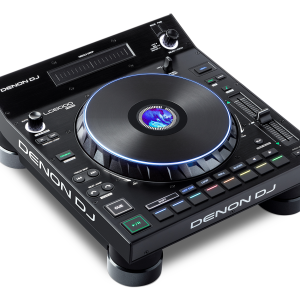
Back In The Booth!
Well, this has been a pretty insane year for the DJ community. And we are far from over it all yet – if we have learned anything this last year or so, its that you should never take anything for granted, even if you have it booked in your diary. Events can spiral very rapidly.
All that being said – if you are used to being a working DJ, now is a good time to take stock of a few things, prepare yourself mentally and physically, and make sure that you are well placed to get straight back to it.
I’ve been gigging hard since the UK’s most recent lockdown ended, so here’s a few hints and tips to help you get back to work safely and effectively!
Health & Safety
This probably doesn’t need pointing out, but we aren’t out of the woods yet with this pandemic, so take a mask with you to wear at the appropriate moments, take some hand sanitiser, exercise caution in enclosed spaces with other people, such as elevators or stairwells etc.
If you can get ventilation to wherever you are DJing (by opening a door/window for instance) then do so – it massively helps reduce the risk of transmission of the virus if there is good airflow.
DON’T GO IN TO WORK IF YOU THINK YOU MIGHT BE SICK! I know it would suck to miss a gig right now, after so long, but it would suck a lot more to give all your co-workers the virus.
Music Library
This is a big one. A year of barely playing out to an audience can do interesting and strange things to your crates… You might have been active on Twitch – but its often a totally different thing on there compared to the “real world” (I certainly play quite differently on Twitch to how I do at live gigs, much more rarities and obscure stuff).
Playing to in-person crowds who are paying to be there (either through entry charges or the food & drink they are buying) can be very different to playing for people on the other end of an internet cable! Keeping a dancefloor happy is very different to keeping a chat room happy!
Some of you may have been following the charts and trends and new releases for your styles for the whole of the last year, and to those conscientious DJs – kudos! To those who haven’t, here’s a few ideas for ways to freshen up your crates.
And also think about your actual arrangement of your music library – we covered this topic here. Having well organised music is practically a super power for the modern DJ!
If you use USB sticks – get on to Rekordbox ASAP and get those sticks updated. Nobody enjoys that last minute rush on a gig night, wishing it would transfer the songs faster!
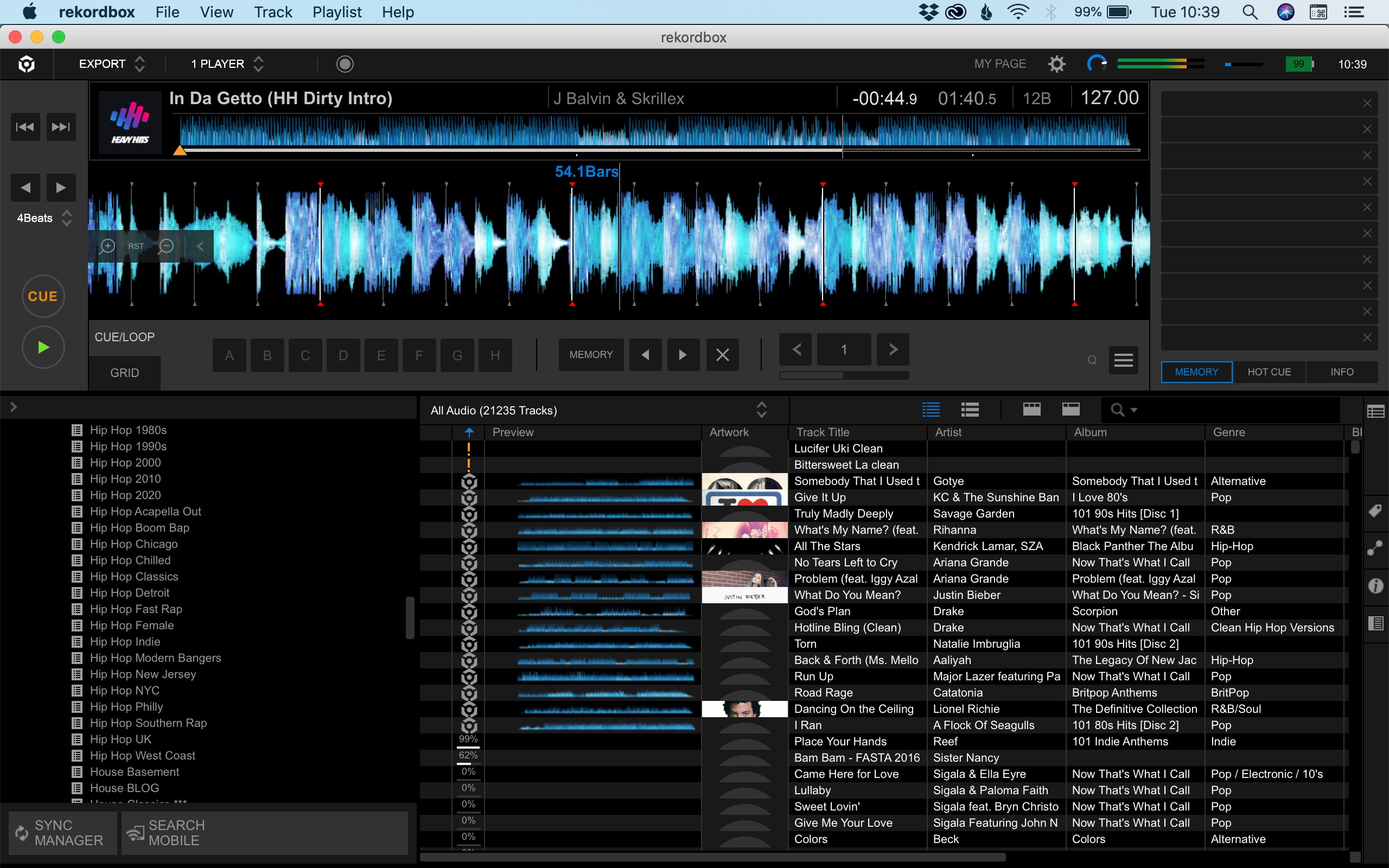
Equipment
Make sure everything that you need to use still works! Make sure you still have your adapters, your cables, your laptop stand – whatever it is you normally take, make sure you still have it, make sure it still works, and make sure you actually take it to your gigs!
On this last point – its not a bad idea to have some sort of checklist of crucial items, either written down, or that you call out to yourself while checking your bag, both when setting off to go to your gigs, and when packed up and about to go home at the end of the night. I always unzip the top of my rucksack and say out loud “laptop, stand, power cable, headhones, USB cable, USB sticks, earplugs” while checking all those items are there. There are other things in the bag, but those 7 are the real essentials.
Stamina
If you get booked to do long sets and haven’t been doing them at home for the last year, now is the time to start practising a few times before you get back out there!
Just getting used to being on your feet for extended periods of time is important, maybe sidestepping any possible posture issues you might get if your first gig is your first time stood at the decks for 5 hours at a time – your back might not be ready if you haven’t done a few warm up sets! Think about the shoes you have available for these gigs, if its a long one your feet will thank you to take care of them.
Another thing is the adjustment to finishing at times beyond midnight – I can say with certainty that this will be a shock to my system after a year of going to be at “Regular People” times!
Maybe pack some snacks and an energy drink or two if you aren’t sure how you’ll cope if you’re going to have to stay up later than normal – we covered the DJ love affair with snacking here.
Admin
Unglamourous, but necessary. Unless you have are the kind of DJ that has a team of staff doing this stuff for you, you need to think about the logistics of your gigs, and getting paid.
Promotional posts on your social media are practically a necessity these days, for multiple reasons – to advertise the event to potential customers, to show your teamwork to the people who booked you, and to let others know that you are out there spinning again.
Invoicing is essential if you want to get paid – make sure all your details are up to date on your invoice, and those of the venues you are DJing at. Last thing you want is for the money to go to an old account or for a payment to be held up for weeks because you invoiced to the incorrect business address or something.
Get your calendar skills back in tune, and maybe set reminders in your phone for the day before gigs – its not easy to immediately get back into the swing of things and remember everything without some external help, and you DEFINITELY do not want to be missing gigs out of forgetfulness!
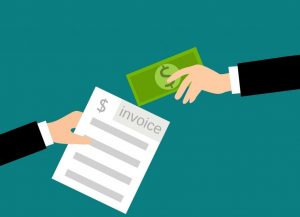
Social Media
I mentioned social media above – well, now is a good time to make sure that your Instagram (or whatever else you use) looks the part. Lets say you go out to your first gig and absolutely crush it. Somebody in the audience asks for your insta, and it just so happens that they do the bookings for a big venue across town – you want to make sure that you make a good impression when they look you up.
I know a lot of people don’t like the importance of social media in how people interact with DJs these days, but its a reality – most people will take a look at those pages before deciding whether to book a DJ. So it makes sense to work on your presentation as we get ready to go back into clubs and events.
Transport
If you drive to gigs – check that the routes and parking are the way your need them to be (lots of authorities are using this time to fix roads/bridge, or have changed access to certain streets/areas), and if they aren’t, make alternative plans. Its a lot easier to plan these things a week ahead of time rather than 30 minutes before your first set in a year is due to start!
If you use public transport – make sure your preferred methods are still running. Similar reasons (authorities fixing train tracks during a relatively quiet time for transit for example), and also some transport services may have seen budget cuts because of the squeezed finances caused by the last year or so. Better to know in advance and plan than turn up to your train station and be hit by a difficult surprise!
Mindset
I suspect that this will be a really big one for a lot of DJs. One of the reasons humans have done so well as a species is that we adapt so quickly to changing circumstances, and that becomes “normal” very fast.
And now, after over a year of acclimatising to a new way of doing things, we are about to be thrust back into the arena. And it might be even MORE crazy than before – people have been locked away for a year, and are absoluting itching to party!
This present a whole lot of opportunity for DJs, but don’t forget – drunk customers are often quite, how can we put it… “direct”.
I had my first run in with this the other night – playing at a venue that draws quite a latin crowd, but isn’t specifically for latin music. I had already played a bunch of latin house and reggaeton, and had moved on to a bit of disco and disco house. A table sat down, and within 5 minutes a woman comes over, and starts saying “when are you playing latin music, we booked here for my friends birthday because this is a latin place…” etc etc. I quickly reassured her to not worry, I would be playing latin music. Problem solved! Except, in classic requester style she then went and added “Because all you are playing is this 80s rubbish”.
I don’t know why people do this (make a perfectly normal request, get a positive answer, but then throw an insult on the end of the request), but it happens – it was the first time I’d had anything like this in probably over a year! I smiled, took a deep breath, and let her walk away. What I was playing wasn’t 80s, she’d only been in the venue 5-10 minutes, there is ABSOLUTELY NO POINT getting into it with her. Had she not come over, I would have played more latin music that night, so I played more latin music that night – much as it was tempting to say “NO LATIN MUSIC FOR YOU!”
The point of that anecdote is this – don’t let an idiot or two throw you off your game. Shrug them off, and keep pleasing the crowd as a whole. If they say something particularly stupid to you, make a note of it – it’ll make a funny tweet later on, and you might get some nice social media engagement out of it!
You’ll have to adjust to strange sleeping patterns, maybe your eating schedule and habits will be impacted. You’ll have the highs of great nights, and the lows of stinkers. Think about how this might affect your mood, other corners of your life, your responsibilities to others in your life (partners, family, housemates etc). Be prepared for the fact that your life is about to change back to a quite different pattern. But most of all – have fun, and be thankful that you get to do this amazing thing called DJing!
In the meantime, head over to the Heavy Hits record pool to check out the best music online, and head over to our socials at Instagram, Facebook and Twitter.

